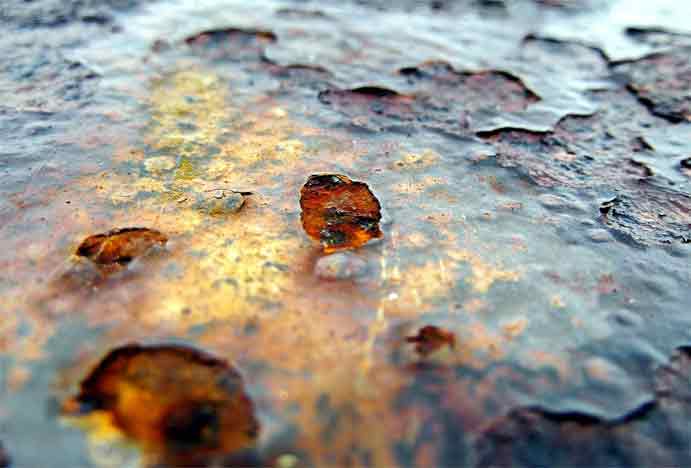Living in a seaside community brings numerous advantages and benefits, but the main drawback is the unavoidable impact of salty air on nearby buildings. From garage doors and siding to the HVAC system, various elements of your property are affected by the beach’s saltwater in different ways.
The American Galvanizer’s Association estimates that metallic corrosion costs the U.S. about $423 billion each year. In fact, rust is listed as a common contaminant that affects the garage door paint or finish, and corrosion is identified as a root cause of garage door breakage.
Unsurprisingly, the closer your property is to the shoreline, the higher its exposure to salty air from the beach. For example, homes and properties in cities such as Long Beach, Seal Beach, Huntington Beach, Newport Beach, Newport Coast, Capistrano Beach, and Laguna Beach, located in western neighborhoods, are more susceptible to the destructive effects of salty air from the beach. Understanding these effects is key to maintaining your home and garage doors, ensuring their longevity. Now, let’s explore the various impacts of beach salty air.
Effects on Steel Components
Numerous buildings and homes feature steel garage doors along with metal components like reinforcement bars, roofing, and cladding. When exposed to salty air, these elements corrode, weaken, and ultimately fail, posing a threat to the structural integrity of both the garage door and the building.
Safety Effects
Corrosion gradually weakens the metal components of garage doors, resulting in structural failures, breakdowns, and potential accidents. For instance, the buildup of corrosion on garage door cables, springs or hinges may cause them to deteriorate and snap under the load, leading to the door coming off its tracks or crashing down. Such breakdowns pose safety hazards in the surrounding area, risking injuries and damage to both the garage door and related equipment.
Efficiency Challenges
Corrosion buildup from salty air in components such as garage door bearings or rollers negatively affects the proper functioning of overhead garage doors, resulting in inefficient door operation. This can lead to issues like excessive noise, increased friction, binding, wear and tear, and added strain on the electric garage door opener.
Deterioration of Masonry and Concrete
Salt deposits from beach salty air can absorb moisture, causing the material to expand and contract, ultimately leading to cracking and spalling. This process over time weakens the masonry and concrete components of buildings.
Damage to Electrical Systems
Beach salty air can cause damage to electrical and mechanical systems in buildings, including garage door openers. Salt deposits can accumulate on electrical contacts, leading to corrosion and failure of the equipment. Similarly, salty air can also cause corrosion of HVAC components, which can reduce their efficiency and lifespan.
Wood Deterioration and Mold
While wood is not directly affected by salty air, it can be indirectly influenced if the garage door or building is not properly maintained. If salty air is allowed to penetrate wooden garage doors or structures, it can cause high levels of humidity. The wood can then become damp and begin to rot, compromising the structural integrity of the garage door or structure.
This moisture can also create an environment conducive to mold growth, particularly in areas with poor ventilation or high humidity. Mold can spread quickly, causing damage to building materials such as wood, drywall, and insulation. According to the CDC, living in a moldy environment can lead to health issues for some people, including throat, skin, and eye irritation, wheezing, congestion, and stuffiness.
Adhesion Problems
Salty air can diminish the adhesion of paint to surfaces, making it challenging for new paint to adhere properly. This can result in the garage door paint or the exterior paint of the building flaking or peeling off more easily, leaving the underlying surface exposed to further damage.
How Salty Air from the Beach Causes Rust
When saltwater evaporates, it leaves behind tiny salt particles that are then carried by the wind. These salt particles can land on metal surfaces and dissolve in airborne moisture, accelerating the corrosion process by initiating an oxidation reaction. In the case of iron or steel, this leads to the formation of rust (iron oxide), recognizable by its reddish-brown color.

Exposure to saltwater and salty air from the beach doesn’t directly cause metals to rust, but it does accelerate the rusting process. The salt content in the air and moisture facilitates the corrosion of metal surfaces by providing the necessary ions for oxidation reactions.
Several factors contribute to the rate of corrosion, including humidity and temperature. Electrochemical corrosion and anaerobic corrosion can both occur when metal meets saltwater. The effects of these types of corrosion can be more severe than rusting as they erode the metal at a much faster rate.
How to Prevent Rust Damage from Salty Corrosive Air
There are several effective ways to prevent rust formation and protect garage doors from the effects of corrosion:
Use Corrosion-Resistant Materials
Using corrosion-resistant materials for properties located near the beach and choosing garage doors made of aluminum or wood can significantly reduce the risk of rust formation. These materials have a natural resistance to corrosion and rust.
Use Protective Coating
Applying a protective coating on steel garage doors and other metal surfaces can prevent rust formation by creating a barrier between the metal and the environment. Coatings such as paint, varnish, and powder coatings can effectively shield the metal surface from moisture and oxygen. Steel garage doors typically come with a protective layer from the manufacturer. When purchasing full-view aluminum garage doors, ensure they have a powder coating finish.
Use Salt Neutralizers
Salt neutralizers counteract the effects of salty air and prevent corrosion. Follow the manufacturer’s instructions carefully and test the neutralizer on a small, inconspicuous area first to ensure it doesn’t damage the garage door paint or finish. Note that some salt neutralizers may contain acidic or alkaline substances that can harm or discolor the garage door, so you may want to use a neutralizer safe for painted steel.
Galvanizing
Galvanizing involves coating metal with a layer of zinc, offering an additional protection against rust. Ensure to ask your garage door repair company or installer about galvanized garage door parts and hardware, including the use of galvanized torsion springs.
Control the Garage
To prevent rust and degradation of garage door components, maintain proper ventilation, regulate temperature and humidity, and avoid exposure to salty air and other corrosive agents. Regularly inspect your garage door weatherstripping and exterior vinyl trim (moldings) to ensure they are in good condition and effectively seal the garage.
Proper Lubrication
Lubricants prevent the accumulation of moisture and other corrosive agents by creating a protective barrier between the garage door moving parts and the environment, reducing the likelihood of corrosion. Regular lubrication of your garage doors can extend the life of the components, decrease maintenance and repair costs, prevent breakdowns, and improve overall system efficiency.
Slice It or Dice It, Salty Air Is Bad News for Your Garage Doors
Despite implementing the aforementioned measures, garage doors in coastal areas eventually succumb to the effects of salty air. The constant presence of salt can take its toll on any protective layer; as a result, stainless steel and other materials start to break down.
This means that your garage doors may lose their attractive luster, develop surface pits, and experience paint deterioration, all of which can negatively impact your home’s curb appeal. Additionally, over time, the structural integrity of the garage door’s hardware is compromised, including components such as springs, rollers, supporting brackets, bearings, hinges, tracks, and rails.
Living near the beach makes it challenging to completely avoid corrosion. Therefore, it’s advisable to take proactive steps to maintain both your garage doors and home. Regular maintenance, lubrication, removing rust, and cleaning of the garage doors and related equipment can effectively minimize the effects of salt buildup and other contaminants, thus preventing corrosion and other forms of damage.








